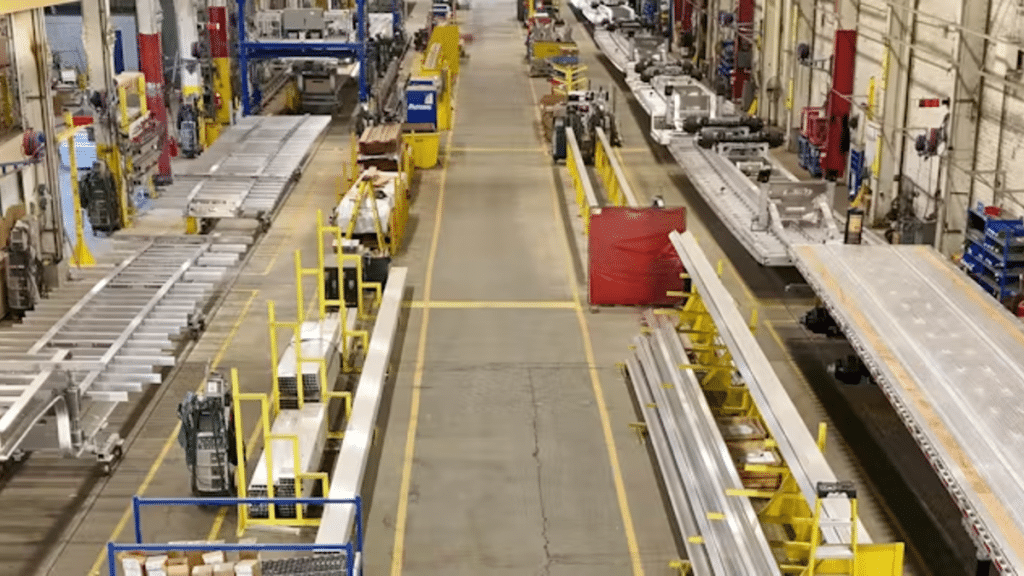Transportation remains a vital component in the manufacturing supply chain. Whether moving raw materials to factories or distributing finished products to wholesalers and retailers, efficient logistics can shape a company’s ability to meet deadlines, control costs, and maintain customer satisfaction. In this context, the performance and reliability of long-haul trailers become essential. Poor trailer design or equipment failure can stall operations, increase repair costs, and compromise delivery timelines.
For manufacturers aiming to optimize logistics, the selection of a well-designed semi trailer is a strategic decision. A trusted semi trailer manufacturer like Rhinotrail supports industrial clients by delivering trailer solutions that meet high-capacity demands, comply with safety standards, and integrate advanced technology for improved oversight and control.
Prioritizing Payload Capacity and Balanced Weight Distribution
A core consideration for any manufacturing operation is the ability of a semi trailer to handle the expected payload. Overshooting capacity leads to safety issues, regulatory violations, and wear on both the trailer and the tractor. On the other hand, underutilization results in inefficiencies and lost opportunities for cost optimization.
Weight distribution is equally important. A semi trailer with improper axle configuration or unbalanced load alignment can shorten the lifespan of tires and suspension components. It also increases fuel consumption and makes the rig harder to handle on the road. Manufacturing firms benefit from working with a semi trailer manufacturer that designs trailers with optimal load distribution in mind. Axle spacing, suspension systems, and frame strength are all critical elements that contribute to stability, performance, and fuel savings across long-haul routes.
Durability and Build Quality for Industrial Applications
High freight volumes and demanding delivery schedules require a semi trailer that can stand up to frequent use under varying conditions. Trailer bodies must be constructed with high-strength materials that balance durability and weight. Steel offers superior toughness in heavy-duty operations, while aluminum alloys provide corrosion resistance and weight reduction for better fuel efficiency.
Trailer longevity also depends on factors such as weld quality, protective coatings, fastener integrity, and flooring strength. For hauling abrasive goods, bulk materials, or heavy machinery, reinforced components like heavy-duty side panels, scuff plates, and anti-slip floors are essential. A semi trailer manufacturer that emphasizes precision construction and advanced material selection, such as Rhinotrail, helps reduce downtime and extend service life, ultimately improving operational consistency.
Smart Technology Integration for Real-Time Control
In today’s logistics environment, data-driven operations have become the norm. Modern semi trailers can be equipped with IoT technology, telematics, and GPS systems that provide actionable insights into trailer condition and cargo status. From tire pressure monitoring to load temperature tracking, these features offer visibility that goes beyond basic transportation.
For manufacturers, smart trailers contribute to smoother scheduling, fewer service disruptions, and better risk management. They allow logistics managers to detect issues early, prevent spoilage of sensitive goods, and improve route planning. A semi trailer manufacturer offering technology-ready designs simplifies integration and allows for seamless monitoring of supply chain performance.
Meeting Compliance and Safety Requirements
Manufacturing firms must also consider the regulatory environment governing long-haul freight. A well-designed semi trailer must meet Department of Transportation (DOT) standards related to lighting, reflectivity, brake systems, and underride protection. These standards exist not just for legal compliance but also to promote road safety and reduce liability risks.
Key features such as anti-lock braking systems, side marker lights, and underride guards should be standard in modern trailers. An experienced semi trailer manufacturer understands the evolving compliance landscape and incorporates these components into every build, reducing the burden on manufacturers and logistics teams to retrofit or modify equipment later.
Customization for Specialized Cargo and Operations
Every manufacturer has different logistical needs. From automotive parts and building materials to consumer goods and perishable products, trailer configurations must align with cargo type and handling requirements. Customized semi trailers provide the flexibility to improve load security, shorten handling time, and reduce the potential for product damage.
Common customizations include side doors, adjustable shelving, liftgates, hydraulic ramps, and specialized floor reinforcements. A semi trailer manufacturer that offers custom fabrication helps businesses align equipment specifications with production flow and warehouse setup, which leads to better coordination between manufacturing, storage, and delivery.
Total Cost of Ownership as a Financial Metric
Focusing solely on the initial price of a semi trailer can be misleading. A low-cost trailer may result in higher fuel expenses, frequent breakdowns, or lower resale value. Instead, manufacturers should evaluate total cost of ownership (TCO), which includes operational costs, repair and maintenance frequency, fuel usage, service availability, and end-of-life value.
Trailers with aerodynamic enhancements, modular parts, and lightweight construction typically reduce fuel costs and increase uptime. Additionally, a semi trailer manufacturer that supports easy access to replacement parts and offers strong after-sales support ensures that maintenance can be performed efficiently. This long-term perspective helps manufacturing firms protect capital investments and sustain profitability across fleet operations.
Smart Trailer Selection Supports Smart Manufacturing
In modern industrial logistics, semi trailers are more than transportation tools—they are critical assets that affect productivity, cost, and reliability. The right trailer setup supports just-in-time delivery models, reduces fuel and repair expenses, and enhances cargo handling efficiency. For manufacturing firms, trailer selection is part of a broader strategy to build resilient and scalable supply chains.
Collaborating with an experienced semi trailer manufacturer allows companies to design transport equipment that aligns with their operational goals and performance standards. From payload capacity and material strength to compliance and technology integration, a high-quality trailer can provide years of dependable service. As logistics continues to shape the competitive edge in manufacturing, investing in the right semi trailer setup becomes essential for long-term success.
